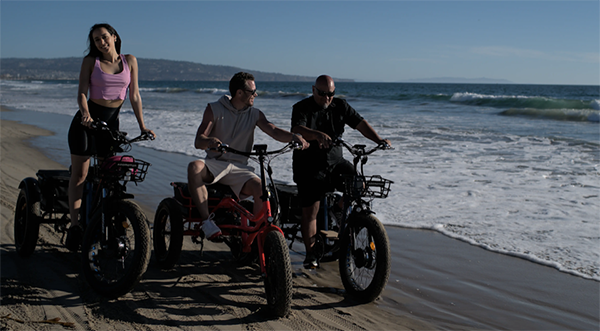In many parts of the world, especially in developing countries and rural areas, tricycles have emerged not just as means of transportation but as powerful tools for community empowerment and change. These three-wheeled vehicles, often humble in appearance, carry a significant impact on the lives of individuals and the collective well-being of communities they serve. At first glance, a tricycle may seem like a simple mode of transport, but its significance goes beyond mere mobility. For many people in underserved areas, owning or having access to a tricycle can mean the difference between stagnation and progress. These vehicles facilitate access to essential services such as healthcare, education, and employment opportunities, especially in areas with limited infrastructure or challenging terrain. Healthcare accessibility is a crucial aspect of community well-being, and tricycles play a vital role in bridging the gap between remote areas and healthcare facilities.

In regions where ambulances or conventional vehicles struggle to navigate narrow paths or rough roads, tricycles serve as lifelines, transporting patients to clinics or hospitals swiftly and efficiently. This swift response can often be the determining factor between life and death, highlighting the critical role tricycles play in emergency medical services. Education is another area where tricycles contribute significantly to community empowerment. In areas with inadequate public transportation, children often face challenges in attending school regularly. Tricycles serve as school buses, ensuring that children can access education without enduring long, arduous walks. This accessibility not only improves literacy rates but also empowers future generations with the tools they need to break the cycle of poverty and trike contribute meaningfully to society. Moreover, tricycles are catalysts for economic empowerment, particularly for individuals seeking livelihood opportunities. Many entrepreneurs in rural areas utilize tricycles for various income-generating activities such as transporting goods, providing taxi services, or operating mobile shops.
This entrepreneurial spirit not only creates employment but also fosters economic resilience within communities, reducing dependency and fostering self-sufficiency. The transformative power of tricycles extends beyond practical benefits; it also fosters a sense of community and solidarity. Tricycle drivers often form networks and cooperatives, sharing resources, knowledge, and support. These collaborations strengthen social bonds and enable communities to address common challenges collectively, from advocating for better infrastructure to promoting sustainable practices. In essence, tricycles represent more than just a mode of transport—they symbolize resilience, resourcefulness, and the human spirit is capacity for innovation. By recognizing and harnessing the potential of tricycles as tools for change, communities can pave the way for inclusive development, where every individual has the opportunity to thrive and contribute to a brighter future.
